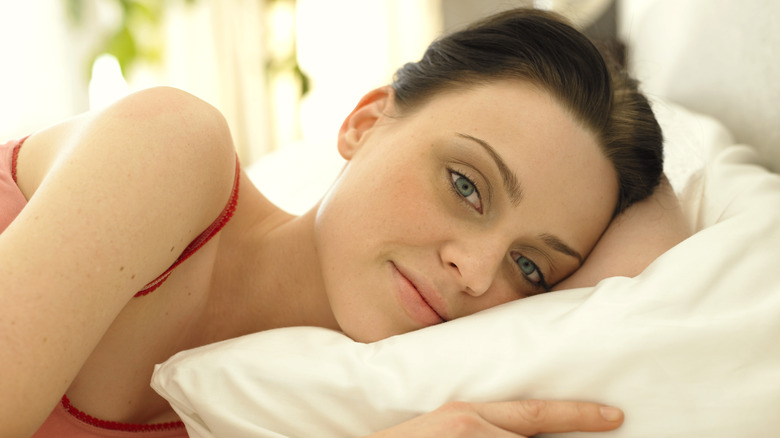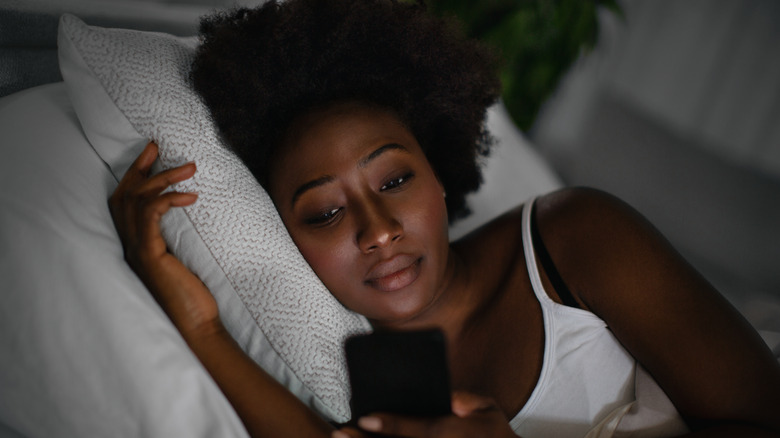Your Eye Color Has An Unexpected Effect On Your Sleep
Light, sound, and temperature are just a few of the more obvious things we know can affect our sleep. Throw in stress, diet, exercise, and more, and the laundry list continues to grow. Yet there are a few not-so-obvious things that can also impact our sleep — and eye color may potentially be one of them.
Your eye color is yours and yours alone. Yes, you may be labeled as having green eyes or brown eyes, but the precise shade of your eye color is so much more nuanced and unique to each person, explains the Cleveland Clinic. What gives your eye its coloring is the amount of melanin contained in the front layer of the iris. If a person's body produces more melanin, their eyes are darker in color. Conversely, if a person's body produces less melanin, they will have eyes that are lighter in color, such as green or blue.
So what does this have to do with sleep? If exposed to light while sleeping, research shows that your eye color may play a role in the body's release of melatonin, a hormone that influences your sleep-wake cycle.
Light exposure while sleeping increases melatonin suppression in people with light eyes
In a 2007 study published in the American Journal of Physiology, researchers examined the role of race and eye color in ten white male adults with light eyes (blue, green, light brown) and eleven Asian men with dark eyes (dark brown). While sleeping, the participants were exposed to room light for a duration of two hours. The study team took measurements of participants' salivary melatonin concentration and pupil size both before and during the intervention. A greater degree of melatonin suppression in response to light was seen in white participants with light eyes more so than in Asian men with dark eyes. No significant variation in pupil size was found between the two groups.
According to 2011 research published in the Journal of Clinical Endocrinology and Metabolism, melatonin suppression from room-light exposure before bedtime can alter the body's perception of night duration and may negatively affect sleep. As seen in the above study findings, those with light eyes may be more susceptible to this response.
Those with dark eyes tend to go to bed later
Additionally, eye color may also be a contributing factor in what time you tend to go to sleep. Researchers from a 2003 study published in Chronobiology International looked at the influence of eye color and geographical location on sleep onset. After analyzing more than 1,000 online survey responses, the study found that people with dark eyes (brown or black) tended to fall asleep more than two hours later than people with light eyes (hazel, blue, green, etc.). This pattern was largely seen during the winter months in the south. The researchers theorized that light-sensitive proteins in dark eyes may remain activated by evening light exposure for longer periods of time than those in light eyes as a means of prolonging the body's perception of day length during winter.
While these findings suggest that iris color may influence when we go to bed and when we wake, a 2009 study published in the Journal of Circadian Rhythms oppositely found that while light exposure did delay participant sleep onset, eye color was not a contributing factor in the magnitude of these circadian rhythm phase shifts. Therefore, more research is still needed on the topic.



